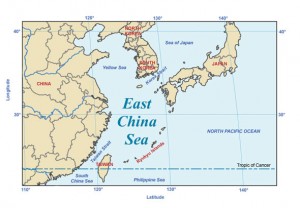The Fifth Straits Forum opened in Xiamen, southeast China’s Fujian province on June 15 and will run until June 21. The goal of the forum is “to promote people-to-people exchanges across the Taiwan Strait amid deep-rooted distrust.” While China maintains an arsenal of nearly 1,600 missiles pointed directly at Taiwan, one must question if these talks are enough to breach the nearly six decades of hostilities that have existed between the two countries.
At the Straits Forum, Zhang Zhijun, the director of mainland China’s Taiwan Affairs Office, outlined thirty-one steps that China and Taiwan plan to execute to initiate better cross-strait relations. One of the steps outlined by Zhijun is a plan to implement Taiwanese accreditation tests on the mainland to encourage more educational sharing. A Chinese spokesman, Yu Zhengsheng, stated that the mainland would further seek to strengthen ties with Taiwan by encouraging travel to the mainland by pro-independence minded Taiwanese. Taiwan is also contributing to cross-strait relations by increasing the number of self-guided tours in Taiwan available to mainland Chinese. These initiatives represent a growing shift toward a more open relationship between mainland China and Taiwan.
This year’s Straits Forum is especially interesting, from a public diplomacy standpoint, because, for the first time, it also incorporates the annual Southern Fujian Cultural Festival.  This festival celebrates the local food, music, art and language of China’s Fujian province. The merging of the Southern Fujian Cultural Festival and the Straits Forum highlights the effort to display the cultural similarities between mainland China and Taiwan. This emphasis is part of an attempt to demonstrate that Taiwan and China share the same cultural heritage.
This festival celebrates the local food, music, art and language of China’s Fujian province. The merging of the Southern Fujian Cultural Festival and the Straits Forum highlights the effort to display the cultural similarities between mainland China and Taiwan. This emphasis is part of an attempt to demonstrate that Taiwan and China share the same cultural heritage.
Huang Shaoping, the party chief of Quanzhou city where the festival is held, stated, “Taiwan and southern Fujian share the same dialect and cultural roots.” As part of the focus on similarities between the two cultures, the festival held a series of events honoring Mazu, a goddess popular in southern coastal China as well as in Taiwan. By focusing on aspects of culture the two countries share, such as Mazu, the Straits Forum seeks to strengthen the relationship across the strait.
Are these programs and others like them among the first steps towards a unification of China and Taiwan or aimed more towards easing tensions to encourage more economic cooperation? At this point, the latter appears more likely. With the signing of the Economic Cooperation Framework Agreement in 2010, trade between China and Taiwan has boomed. In 2012, for example, two-way trade between Taiwan and China amounted to US$168.96 billion, with Taiwan enjoying a surplus of more than US$95 billion.
In discussing the possibility of thawing China-Taiwan relations, it is important to note this growing economic relationship between the two nations. In order for this economic cooperation to continue, it is in the self-interest of each nation to continue these public diplomacy efforts aimed at generating mutual trust and collaboration. Public diplomacy efforts such as this year’s Straits Forum play a vital role in keeping the growing economic cooperation between China and Taiwan open. While Taiwan aims at maintaining its de facto undeclared independence, it is also fully aware of the benefits that come with Chinese cooperation.


